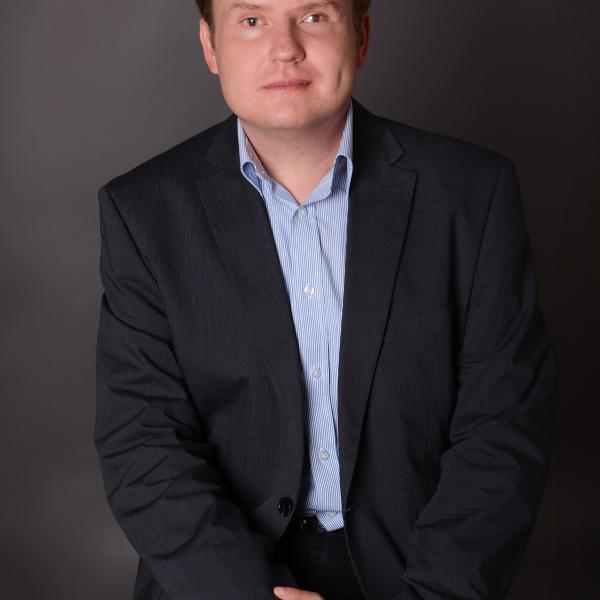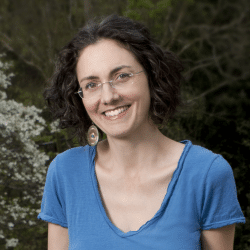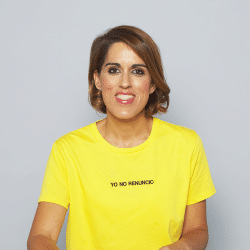Introduction
Having lost sight as a child, Irek perfectly understands the challenges faced by persons with disabilities both in the labour market and at university. After turning around the policy and standards related to the inclusion of persons with disabilities in university education, he now focuses on solutions in the area of employment. He empowers diversity and CSR managers so that they become true ambassadors of change transforming the corporate culture from within by employing staff based on their talent and ensuring equal treatment and a good working environment for all.
The New Idea
Although companies declare they want diversity in their teams, it is not really happening. In Poland in 2016 only 23% of persons with disabilities in working age were employed. Half of those 23% worked in sheltered workplaces, so not in regular enterprises. Employment rates of people over 54 years old in majority of EU countries is over 20% lower than employment rates of those between 25 and 54 years old. On the other hand, Google announces on it’s website that 2% of it’s employees has ethnicity black. In tech departments it is only 1%.
Ireneusz envisions a society in which employers believe and act upon the belief that each person, irrespective of physical and mental ability, age, ethnicity etc. can become an active contributor in the society based on his or her potential and talents. Nevertheless, reaching diversity at the workplace is difficult because it requires in-depth understanding of the diverse and complex needs of each minority group. While CEOs created new positions such as CSR or diversity managers to show their commitment, they provided them with no professional support, resources, know-how or a peer support group to learn from, find solutions and share experiences with.
One of the reasons why diversity in a workplace is not happening, is because it is a very complex issue. Much more complex than CEOs think. Every minority is different, - persons with disabilities, elderly persons, persons with psychological challenges, ethnic minorities, - they all have different needs and require different solutions and adaptations. Usually the CSR or diversity managers dedicated to those tasks, have no way to effectively address those issues alone and without professional support. And there is no professional support. They have neither resources, know-how, skills, nor a peer support group to learn from, find solutions and share experiences with. As a result, those truly devoted individuals don’t accomplish their tasks, companies do not employ “different” people and they don’t benefit from their abilities and talents.
Irek identified those lonely agents, CSR and diversity officers within companies, as a latent asset. He realized that empowering them, equipping them with skills, know-how and a peer support group was key to transform companies from within and make them truly open to diverse sources of talent. Irek created a simple but efficient way to shift their role from “fig leaves” (covering the fact that their companies did not do a great deal when it comes to diversity) into true intrapreneurs, changing their teams and their organizational cultures.
The Problem
Although companies claim to support diversity in their teams, the statistic show otherwise. In Poland in 2016 only 23% of people with disabilities (of working age) were employed. Half of those 23% worked in so called institutions of job safety, not in regular enterprises. Employment rates of people over 55 years old in the majority of EU countries is 20% lower than employment rates for those between 25 and 54 years old. On the other hand, Google announces that 2% of its employees are black. In global tech departments it is only 1%. The percentage of persons with disabilities hired by the Polish local and central administration is 0,6%.
Unemployment and economic inactivity are commonly present in Polish and European market. The extensive evidence on far reaching negative consequences of job loss is clear: the lack of a job can lead to worse mental and physical health and even higher mortality rates. Unemployment, known as learned helplessness, brings consequences such as withdrawal and discouragement from other forms of social life such as culture or simple socializing for example.
This concerns groups that are usually targeted by diversity programs - people with disabilities, elderly, women, minorities and migrants, as well as persons with mental disorders. Young people with immigration background are 70% more likely to become NEET (not in employment, education or training) compared to nationals. Those declaring of suffering some kind of disability are 40% more likely of becoming NEET compared to others.
Although companies declare they want diversity in their teams, it is not really happening. The leading employers of the Top Employers Poland 2016 Award do not employ persons with disabilities at all. As Diversity Barometer shows, managing diversity in Poland has only one dimension and it is seen as women employment. Only 26% of companies have a document called “diversity strategy”, 31% of companies monitor a pay gap according to social-demographic features and only 23% run special programs for certain groups such as persons over 50 years old or persons with disabilities.
One of the reasons why diversity in a workplace is not happening, is because it is a very complex issue. Much more complex than CEOs think. Polish District Employment Offices refund remunerations for unemployed persons with disabilities but offer no instructions nor guidance explaining how to do that in a way that would be beneficial for both – the employer and the employee.
The Polish State Fund for Rehabilitation of Disabled Persons does support employers in creation of a workplace for a person with disability, but does not allow to use the funds for trainings. Many employers consider paying fees for not employing persons with disabilities to the State Fund for Rehabilitation of Disabled Persons, to be a better solution than creating workplaces for people with disabilities – better equals simple. It is visible in the annual report of The Responsible Business Forum, where from 880 good practices only 13 were submitted in the field of human rights, which cover topics such as diversity. Those 13 examples were mostly communication campaigns promoting diversity among employees, as projects aimed at preventing exclusion in the workplace.
Usually the CSR or diversity managers dedicated to those tasks, have no way to effectively address those issues alone and without professional support. And there is no professional support. The several external experts present on the market have no track record of successful instilling of the diversity culture into companies. Obviously their work is an additional cost for the CSR budget. CSR managers can train themselves during dedicated post graduate studies. But the curricula of those do not cover such topics as practical solutions for diversity, or employment procedures for people with special needs. Generally CSR focuses more on external and internal communication. And in this paradigm, a CSR or diversity manager can’t really admit to its peers that he or she lacks resources to drive change.
The organizational culture of many companies is also against the task of CSR managers. Companies are very competitive, and thereby corporate culture doesn’t allow to share challenges as it nurtures results and achievement. There is no place for the weak.
As a result the CSR managers instead of being the change agents in their companies, become frustrated, powerless employees who have neither resources, know-how, skills, nor a peer support group to learn from, find solutions and share experiences with. Most of CSOs working on diversity refuse to contact CSR/diversity managers stating that they have no impact, no influence and are helpless. Those truly devoted individuals don’t accomplish their tasks, companies do not employ “different” people and they don’t benefit from their abilities and talents.
The Strategy
Irek himself is visually impaired. As a young person, he thought that graduating from a faculty was the best way to get a career on a regular job market. The first challenges he has faced were the ones related to education. This is why he has spent over 15 years adapting the higher education institutions in Poland to the needs of persons with various disabilities. The solutions that he has implemented cover such diverse areas such as top-notch technology that these days allows access to various resources for disabled persons. Irek has stimulated the creation of the first association of the University Disability Ombudsmen in Poland which has allowed them to work on certain standards and policies of how a higher education institution should be prepared for teaching persons with special needs.
Irek managed to successfully adapt the University through a practical application of systemic solutions for persons with disabilities. Thanks to Irek’s work, the Jagiellonian University became the first in Poland with special programs for those students and academics who suffer from mental illnesses. They became an example and a mentor not only for number of Polish, but also international Higher Education Institutions.
It is also thanks to Irek that since 2008 the percentage of persons with disabilities with a university degree grew from 5.4% to over 10% in 2014. And yet Irek noticed that only half of those persons did actually get a job (46%) and usually this was a job related to the higher education institution of their graduation. Only 6% of all persons with disabilities work in other sector than agriculture and farming, construction or cleaning and maintenance. They are also employed by small private companies which is great but it excludes them from international corporate careers and wages.
Irek’s strategy is very much based on his personal experience, as well as those of many persons with disabilities who have graduated from higher education institutions and have no possibility to get regularly employed by a renowned company. But instead of preaching and teaching business that it’s leaders should be more open, Irek decided to work with people who are not high in the corporate hierarchy but who have the empathy and openness to start a conversation. Most CSOs working on employment of persons with disabilities strategically decide to ignore the CSR or diversity managers knowing from their experience that they don’t really have influence on the decision-making processes in their companies. Seeing that their potential is being wasted, Irek decided, against the overall practice, to work with identified lonely agents, CSR and diversity officers within companies.
Irek was in this situation himself, when 17 years ago he has started to change the Jagiellonian University in order to assure the rights of its’ disabled students. Many years later he realized that empowering those dedicated individuals is the best way to start the system change from within. Irek knew that equipping them with skills, know-how and a peer support group was key to transform companies and make them truly open to diverse sources of talent. Irek founded an organization called MOFFIN Managers of the Future in 2013 and started his work in Kraków – a Polish city which is a European hub for shared services centers. He started by strategically choosing companies that provide services where diversity is an advantage.
Irek found the first change-lever in creating space where CSR and diversity managers/officers from various companies join their potential as working groups focused on a given diversity issue. The group of diversity or CSR professionals interested in a specific diversity related topic attend regular meetings that are structured in a way that assures a deep and practical transformational experience. At the moment, Irek’s organization facilitates the work of three task-forces – one working on disabilities, one on ageism and one on cultural diversity, involving around 30 people from companies employing altogether over 8000 employees. Those working groups receive facilitation, training, skills, know-how (also on potential funding sources for their activities), contacts and support group of other professionals in the field.
As a result, the members of a working group become what Irek calls “managers of the future” – people who really know how to include talented persons into the teams in their companies no matter how different they are. “Managers of the future” then train other managers in their companies of origin, so that they know how to benefit from the abilities of various minority representatives in their teams and how to face challenges that their differences may cause. This creates a cascade effect within companies, radically changing attitudes of their employees and executive teams and thus the organizational culture. Managers of the future get certified and create knowledge products distributed far beyond their companies. As the members of the working groups work back in their respective enterprises on the same issue at the same time, the impact is more visible, sharing know-how and experiences is easier and the results are more impressive. Irek has also created a platform for CEOs interested in diversity issues creating more support for their intrapreneurs inside their organizations.
To provide a common space for sharing the revelation of implemented novelties – Irek convenes an annual celebration of diversity. Once a year he organizes an international conference called Come CloSeR Show that encourages more enterprises to join in the vision by highlighting the impressive results of the intrapreneurs work. The Show attended by CEOs and CSR/diversity of over 100 various companies fulfills three aims: position building, sharing know-how products and encouraging more companies to join the movement. CSR managers build their position within organizations as well as local offices build their reputation in their global network, since global CSR/diversity leads are part of the conference. Guidebooks and other materials created by members of the task forces are being shared and discussed during the Show to prove and illustrate the work completed during the whole year.
Aiming to enhance the impact, Irek is developing a multifunctional and fully accessible eLearning platform which will allow intrapreneurs to solve their internal diversity issues by peer to peer support as well as to engage certified managers of the future as experts when needed. Irek’s plan is to reach most of the big companies operating in Poland and through those local chapters to get to their global headquarters helping them to benefit from the richness of diversity for their teams in next 15 years.
During the three years of implementation of his business-oriented strategy, Irek has built partnerships with a dozen of big companies such as Capgemini, Roche, Google, Shell, Ikea, CISCO and several others, including local enterprises. As a result of Irek’s work Capgemini started employing persons with disabilities and raised the number of persons with disabilities employed in its Polish chapter by 160%. Other chapters of the organization are now implementing the new model of employment.
Irek, based on the e-platform and Managers of the Future network, plans to build a professional, intellectual and know-how diversity support center by 2030. It is designed to fill the intellectual and professional gap that neither business nor universities alone have the intention or capacity to fill. The center will provide support for big transformational diversity-oriented processes in organizations. The ultimate goal is a mind shift towards inclusion, where todays representatives of various minorities with special needs are included and can fully contribute to the society. According to Irek, in the future all managers need to be aware, open and inclusive. Irek named his organization MOFFIN Managers of the Future, because he envisions all managers to be the way “his” Managers of the Future are nowadays.
The Person
Irek lost sight at the age of 14, however it did not stop him from attentively looking at the social problems of transformation. He quickly learned Braille . Despite the challenge of having no PCs with speech synthesisers like today. He also learned how to move independently and perform daily activities. Still, he had to complete primary school at a so-called Special Centre. It was a life-changing experience as he could make comparisons between the standard public school, still fresh in his memory, and a facility for blind children spending many years there and trained only in few professions imposed on them as the “appropriate” ones.
He continued his education in a public secondary school, where he was the only pupil with visual impairment. As a teenager he started his adventure with the radio, where shortly after he started to broadcast on various social issues. Through those experiences Irek decided to become a journalist. When he was accepted for Journalist Studies at the Jagiellonian University he had heard from the dean, that “university is not a place for cripples”. He graduated from the Jagiellonian University while working in the radio at the same time, where he paid attention to unemployment, very common in Poland in 90s.
In 1999 he was employed as an Ombudsman of persons with disabilities at his Alma Mater, as the first person on this position at the Jagiellonian University and the third person in Poland. There was no Polish examples to follow, no budget, and no one was really interested in the success of this undertaking. However, the needs were real and Irek was determined to succeed. He, himself was in a position of many CSR/diversity managers of today - they have goals no one believes in and thus have no real support. His task was not a priority for the University, he was alone and had no team, and there was no one in Poland to learn from. He managed to get external funding to go abroad and learn how to do it, he initiated gatherings of Ombudsmen of people with disabilities from other Polish Universities and he has built a team. His own experience allows him to believe that empowering CSR/diversity managers is the path to follow.




